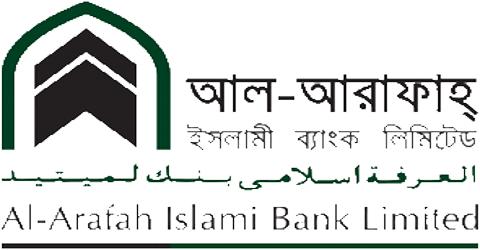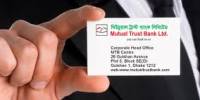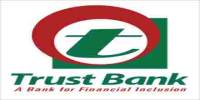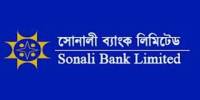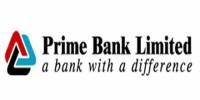The vital objective of this report is to analysis General Banking of the Al-Arafah Islami Bank Limited. General objectives of this reports are to have exposure to the functions of general banking section, to know about the profile of AL-Arafah Islami Bank Limited, to know about performance of the Bank and to apply theoretical knowledge in the practical field. Finally this report make swot analysis General Banking of the Al-Arafah Islami Bank Limited.
Objectives of the Report:
The main objectives of this report are:
- To have exposure to the functions of general banking section.
- To know about the profile of AL-Arafah Islami Bank Limited.
- To know about performance of the Bank.
- To apply theoretical knowledge in the practical field.
Historical Background of AIBL:
Al-Arafah Islami Bank Limited was incorporated on 18th June, 1995 under the companies Act, 1994 as a banking company with limited liability by share. It started business on 27 September of that year with an authorized capital of Tk.1, 000 million. At inception, its paid up capital was Tk. 101.20 million divided into 101.200 ordinary shares of Tk. 1,000 each. 23 sponsors of the bank subscribed the total issued capital. In 2000 the paid up capital of the bank increased to Tk. 253 million, of which Tk. 126.50 million were paid by the promoters/ sponsors and Tk.126.50 million by the general public. The bank is listed in the two stock exchange of the country and has offered 126,000 shares for subscription and trading by the public.
Al-Arafah Islami bank is an Interest-free shariah Bank and its modus operandi is substantially different from those of regular commercial banks. The bank however, renders all types of commercial banking services under the regulation of the Bank Companies Act 1991. It conducts its business on the principles of musharaka, bai-murabaha, bai-muajjal and hire purchase transactions. A Shariah Council of the bank maintains constant vigilance to ensure that the activities of the bank are being conducted according to the precepts of Islam. All activities of the Al-Arafah Islami Bank Limited are conducted of an interest-free system according to Islamic Shariah. It invests all of halal commondities and on a profit and loss sharing basis. A fixed percentage of income derived from investment of mudaraba deposits is distributed to the mudaraba deposit holders.
AIBL was established not onoly to earn profit and to develop economy of the country but alsjo it had an ultimate goal to get reward in the Heaven by banning interest in business. The Islam loving people specially who are not interested with interest, should help this bank giving deposit and taking investment from this bank. The Bank is committed to contribute significantly in the national economy. It has made a positive contribution towards the socio-economic development of the country by opening 66 branches on which 16 authorized dealer (AD) throughout the country. The equity of the bank stood at 2,705.74 million as on 31st December 2008, the manpower was 1080 and the number of shareholders was 10,664.
Special Feature of AIBL:
As an Islami bank, we are singular in every positive aspect. We provide a bunch of state-of –art banking services within the wide bracket of shariah. We are unique with our products, strict with our principle and uncompromising with our honesty. Here are some special features of us that make us notable in Islami banking sector.
- All activities of AIBL are conducted under a profit/loss based system according to Islamic Shariah to get the nation rid of Usury.
- Its investment policies under different modes are fully Shariah compliant and well monitored by the board of Shariah Council.
- During the year 2007, 70% of the investment income has been distributed among the Mudaraba depositors.
- In 2008, AIBL has included online banking in its wide range of services. Bangladesh software has been introduced in this feature to promote the local developers.
- AIBL regularly arranges its AGMs (Abbual General Meeting). Whenever needed EGMs (Extraordinary General meeting) are also arranged.
- We regularly pay dividend to our valued shareholders. For the year of 2007, we declared 20% bonus dividend to our shareholders.
- We believe in providing dedicated services to the clients imbued with Islamic spirit of brotherhood, peace and fraternity.
- The bank is committed towards establishing a welfare-oriented banking system to meet the needs of low income and underprivileged class of people.
- The bank upholds the Islamic values of establishment of a justified economic system through social emancipation and equitable distribution of wealth.
- Following the Islamic traditions, it is assisting in the economic progress of the socially deprived people; in the creation of employment opportunities and in promotion of rural areas to ensure a balance development of the country.
Product & Service:
- Deposit
- Investment
- Foreign Trade
Deposits:
- Al Wadea Current Deposit (CD)
- Mudaraba Saving Deposit (MSD)
- Mudaraba Tem Deposit (MTD)
- Mudaraba Short Notice Deposit (SND)
- Monthly Installement Based Term Deposit (ITD)
- Monthly Instalment Based Hajj Deposit (MHD)
- Onetime Hajj Deposit (THD)
- Marriage & Investment (MIS)
- AL-Arafah Savings Bond (ASB)
- Foreign Currency Deposit (FCD)
- Pension Deposit Scheme (PDS)
- Cash Waqfa Deposit Scheme (CWD)
- Mudaraba Millionaire Deposit scheme
- Mudaraba Double Deposit Scheme
- Mudaraba Lacpoti Deposit Scheme
- Mudaraba Kotipoti Deposit Scheme
Investment:
- Investment in Agricultural Sector
- Investment in Industrial Sector
- Investment in Business Sector
- Investment in Foreign Trade
- Investment in Construction and Housing
- Investment in Transportation Sector
- Hire Purchase (HPSM)
- Investment Schemes in Masque and Madrasa (MMIS)
Position in the stock market
Banks share sustained a steady strong position throughout since its inception at Dhaka & Chittagong Stock Exchange in1998.In Dhaka Stock Exchange the face value of taka1000 of our share was treaded at taka3099.50 highest in 2008.
The market trend of AIBL share in Dhaka Stock Exchange between January to December 2010 is stated below:
Stock Market
| Month | Highest | Lowest | Closing |
| January | 3099.50 | 3025.00 | 3030.50 |
| February | 2910.00 | 2900.00 | 2901.00 |
| March | 2959.00 | 2920.00 | 2951.25 |
| April | 2967.00 | 2940.00 | 2947.25 |
| May | 2325.50 | 2305.00 | 2313.25 |
| June | 2225.00 | 2225.00 | 2225.00 |
| July | 2210.00 | 2200.00 | 2200.75 |
| August | 2380.00 | 2350.00 | 2364.75 |
| September | 2426.50 | 2400.00 | 2400.50 |
| October | 2301.25 | 2280.00 | 2295.00 |
| November | 2415.00 | 2397.00 | 2410.00 |
| December | 2440.00 | 2400.00 | 2420.25 |
Progressive Analysis
At the end of current year, the number of depositors stood at 243273 and the amount of deposit has accumulated to Tk.16775.33 million. The total numbers of investors are 13213 and total investment extended to them was a sum of total taka17423.19 million.
The bank has earned Tk. 2172.48 million and incurred an expense of Taka1202.71 million in the current year. At the end of the year the profit before tax has stood TK.855.47 million, which is78.97% more than TK.478.00 million pre-tax income of the last year.
Capital of Al–Arafah Islami Bank Limited
The Bank Company Act, 1991, which amended in the march 2003, includes a provision of raising the capital to a new level of taka 100 crore for the commercial banks within March 2005. In compliance with the new provision, the bank has raised its capital from Tk. 41.58 crore in the year 2002 to TK.85.56 crore in 2003 by issuing a right share against each of the existing shares in the year 2003 and declared16% bonus dividend from the profit of the year2003. The bank again declared 15.50% bonus dividend from the profit 2004. As a result, the paid up capital of the bank stood at Tk. 67.79 crore as at 31st December 2005.
Bank declared 26.00% bonus dividend for the year 2005. As a result the paid up capital of the Bank stood at TK. 85.42 crore as at 31st December 2006. In this fund bank experience a growth rate 64.18%
Reserve Fund
The total balance of the reserve fund stood at Tk. 61.01 crore in the current year against 835.94 million compared to previous year 2006.
Capital Adequacy
The Bangladesh Bank has fixed the ratio of capital adequacy against risk-Weighted Assets at 9.00% in place of 8.00% in the month of September 2002. In 2002, the amount of total capital of the bank was 41.57 crore taka, which stood at Tk.104.27 crore in the year 2004 and taka 130.56 crore in the year 2005. This year it stood at taka 183.04 crore at the end of December 2006, the capital adequacy ratio of the bank is 10.71% against 12.17% at the same period of 2005.
Deposit
The total deposit of the bank was Tk. 16775.33 million at 31st December 2006, of which bank deposit was 611.72 million taka and general deposit was 16136.61 million taka. At the same period in the last year, the amount of total deposit was 11643.66 million taka. In this area the growth rate is 44.07%.
Investment
At the end of the year 2007, the amount of investment of the bank was Tk.17423.19 million in comparison to Tk.11474.41 million of the last year 2005. The amount of investment has increased 5948.78 million taka within this period, which is around 5184%.
Foreign Trade
At the year of 2006, the bank experienced satisfactory growth in the foreign trade. At the end of 2005, the total amount of foreign trade (export,import,remittance) was 18020.10 million taka, which has increased at 60.18% to reach 28865.00 million taka in 2006. The total export of the bank was 4932.90 million taka in 2005, which has increased at 85.34% growth rate to reach 9142.70 million taka in 2006, whereas the national growth was 85.34% during the same periods. Similarly the amount of import has increased from 12631.60 million taka of 2005 to 18821.40 million taka in 2006, experiencing a growth rate of 49.80%. Last year the amount of remittance through the bank was 455.60 million taka, which grows to 900.90 million taka in the current year.
Income
Investment Income
The total income generated from the investment is Tk. 1701.40 million which is 78.32% of the total income. At the corresponding period of 2005, this income was TK. 1118.38 million. It indicates an increasing growth rate of 52.14%.
Income from other than investment
The bank was earned Tk. 471.19 million from other source than investment like commission income, exchange income, locker rent etc. In the current year which is 21.68% of total income. The bank earned Tk. 334.35 million from the same source in the corresponding period for the last year, which indicates 40.90% growth rate.
Expenditure
Profit paid to Depositors
The bank has paid the depositors 819.71 million taka, which is 70% of the investment income and 68.16% of total expenditure of the year 2006. The amount of this expenditure was 550.79 million taka in the last year. In this purpose the expenditure has increased 268.92 million taka or by 48.82% compared to previous year.
Administrative and other expenses
The administrative and other expenses have increased by 8.29% in 2006, in compare to that of 2005. The administrative and other expenses were tk.353.68 million in the last year and it amounts to tk. 382.99 million in the current year which is 31.84% of the total expenditure.
Operating Profit
The bank has earned Tk. 969.77 million as operating profit during the year. In 2005 it was tk. 548.20 million. The growth rate is 76.90%.
Dividend
The bank has been paying dividends in every year from 1998 when it was established as a public limited company. The bank paid the dividend at the rate of 15% in 1998, 12% in 2000, 7.5% in 2001, and 20% in 2003. Bank declared bonus dividend at the rate of 16%, 15.50%, 26%, and 35% to its shareholders in the year 2003, 2004, 2005 & 2006 respectively.
General Banking services of Al-Arafah Islami Bank Ltd :
- Account Open
- Account Close
- Remittance
- Cash
- Clearing
Account Opening
Banker customer relationship is established through opening an account on obtaining introductory reference and introduction. If there is any lapse in this regard bank may suffer loss subsequently. Bank shall not get protection under section 131&131(a) of Negotiable Instruments Act 1981 for negligence and will be guilty of conversion in case of collection of a cheque instrument having defective title if the account is not opened without proper introduction & inquiry. There are many kinds of account and schemes maintain by the Al-Arafah Islami Bank Limited to their customers required. Such as:
Sharia principle of current, saving, and term deposit account:
Current Account
Deposit in Current account in Islami Bank is accepted under the principle of Al -Wadia. It means that the bank receives money in current account as Al- Amana (on trust). As such the bank is under obligation to return the entire money on demand by the customer and the customer in on way shall bear the loss which the bank sustains in its operation. The bank however, can use money at its risk with the prior permission from customer. As agreed upon by prior contract, the customer may also receive any benefit from the bank. In our bank, however, no benefit is given to the current account holder as per prior contract. The bank has also the discretion to recover the incidental charges for the maintenance of the account or any other services rendered.
Procedures to open a Current Account:
At the name of any person:
- Two stamp size attached photograph duly signed by the acceptable introducer of the bank.
- Photograph of the nominee.
- Photocopy of passport/voter identity/commissioner certificate.
For self-proprietorship Institution:
- Two stamp size-attached photograph duly signed by the acceptable introducer of the bank.
- Photograph of the nominee.
- Photocopy of Trade License.
For partnership company:
- Copy of partnership certificate.
- Photocopy of Trade License.
- Two stamp size-attached photograph duly signed by all parsons who will maintain the account.
For the public limited company:
- Along with above paper have to submit certificate of commencement.
Saving, & term deposit
Deposit in saving, shorts notice & term deposit accounts is accepted on the Mudaraba Principle of Islami Sharia. Under the above principle, the client is the Shaheb- Al-mal and the bank is Mudareb. As per the contract, the bank is authorized to invest Mudaradba funds at joint risk of the client and the bank. The clients can not interfere/participate in the management of the fund. Any profit resulting from the investment of the Mudaraba Fund is distributed between the client and the bank as per the principle of distribution of profit announced by the bank as at the beginning of the year or as per contract. The loss is to be borne by Shaheb Al-Mal after adjustment of the same from equity and the bank does not get any remuneration for the management of the fund.
Procedures to open a Saving Account
Personal, partnership, and club, school, madrasa etc financial institution can open this type of account.
- One passport Two stamp size-attached photograph duly signed by the acceptable introducer of the bank.
- Regulation copy to operate the account.
- Photograph of the nominee.
- Photocopy of passport/voter identity/commissioner certificate.
- Photocopy of Trade License.
Short Notice Deposit (SND)
Bank accepts such kind of deposit, which is withdrawal at notice of seven to Twenty nine days, and thirty days and over with profit. The account is maintained like that of a Mudaraba savings account.
Sundry & other deposits
Sundry & other deposits are also treated to be accepted under Al-Wadia Principle. Al-Arafa Islami Bank Limited do maintain various term deposit account and deposit scheme
Hajj account deposit
Hajj deposits at monthly installment for any period from 1(one) year to 20(twenty) years are accepted under the above scheme to enable the account holder to perform Hajj.
One Time Hajj deposit
For once time a certain amount of money can be deposited from 1(one) year to 25(twenty-five) years under the one time Hajj scheme to perform Hajj at the maturity period.
Monthly profit Based Term Deposit
Under the above scheme, deposits of Tk.1.00 Lac, 1.10 Lac, 1.20 Lac, 1.25 Lac and multiple thereof are accepted for a term of 5(five) years and the bank gave profit thereon Tk. 969 per month per Lac and proportionately on the rest amount of deposit under the category during the year under review. The aforesaid rate shall, however, be adjustable at the close of the calendar year on finalization of accounts.
Installment Term Deposit (ITD)
According to mudaraba rules, this deposit is accepted. The main attraction is its profit is calculated on the daily deposited amount. Under this scheme, a form has to be filled. One parson can have more than one ITD account in the same branch it’s sustained for:
Table for Deposit in monthly installment and maturity Periods:
| Name of Scheme | Installment | Maturity Periods |
| ITD | 200.00 | 5-12 years |
| 300.00 | Do | |
| 500.00 | Do | |
| 1000.00 | Do | |
| 1500.00 | Do | |
| 2000.00 | Do | |
| 3000.00 | Do | |
| 4000.00 | Do | |
| 5000.00 | Do |
The schemes of Mudaraba Milliner Deposit Scheme (MMDS )accounts are:
| Name of Scheme | Maturity Periods | Monthly Installment | Receivable Amount |
| MMDS | 3 years | 23950.00 | 10.00(Lac) |
| 4 years | 16950.00 | 10.00(Lac) | |
| 5 years | 12750.00 | 10.00(Lac) | |
| 6 years | 9950.00 | 10.00(Lac) | |
| 7 years | 8000.00 | 10.00(Lac) | |
| 10 years | 4600.00 | 10.00(Lac) | |
| 12 years | 3345.00 | 10.00(Lac) | |
| 15 years | 2170.00 | 10.00(Lac) | |
| 20 years | 1150.00 | 10.00(Lac) |
Mudaraba Lakhopoti Deposit Scheme (MLDS) account are
| Name of Scheme | Maturity Periods | Monthly Installment | Receivable Amount |
| MLDS | 3 years | 2375.00 | 1.00(Lac) |
| 5 years | 1275.00 | 1.00(Lac) | |
| 8years | 670.00 | 1.00(Lac) | |
| 10 years | 460.00 | 1.00(Lac) | |
| 12 years | 335.00 | 1.00(Lac) |
Mudaraba Term Deposit (MTDR)
Multiple of 1.00 Lac & over in multiples of that are accepted for 3or 5 years and the bank give profit of Tk.969for each month on per Lac and rest amount are adjusted with deposit. There are several type of deposit is known as Mudaraba Term Deposit
They have also Mudaraba Kotipoti Deposit Scheme and Mudaraba Double Deposit Scheme of various periodic.
Savings Investment deposit
Deposit under the scheme is accepted by monthly installment and after expiry of the term, double amount of such savings in given as investment in feasible sectors by the bank as per choice of the depositors without any collateral security. Any one by saving under the scheme can take business venture on utilizing the amount saved under the scheme as well as availing ban investment.
Marriage Savings Deposits and Investment Scheme:
Fixed monthly installment for a particular period is to be deposited to defray the expenses of marriage and the bank allows double of Saving or Tk. 30,000 which is higher as investment to procure ornaments, furniture, fixture, etc. repayable in 24 monthly installment without any collateral security.
ACCOUNT CLOSSING
- Whenever a customer approaches for closing an account, he may be requested to submit an application mentioning the reason of closure of a/c along with the unused leaves of cheque book and pass book (if any) issued to him.
- On receipt of the application, it should invariably be brought to the notice of the manager who will personally see the matter.
- On being satisfied of the reason of closure. Manager will pass an order to that end.
- If an account is closed closing charge shall have to be realized.
- The closing balance after recovery of incidental charges shall be paid through an unused cheque/ pay order.
Beside of the above procedure account may close by following matter:
- Death of constituent.
- Disbursement from deceased account.
- Prohibitory orders from court.
- Freeze of account.
- Blocked account.
- Bank rights to close an account.
Types of Remittance
- Between banks and non banks customer
- Between banks in the same country
- Between banks in the different centers.
- Between banks and central bank in the same country
- Between central bank of different customers.
The main instruments used by the NBL of remittance of funds are
- payment order (PO)
- Demand Draft (DD)
- Telegraphic Transfer (TT)
is retained by the Custodian and joint custodian records of keys is maintain in key register and the keys being duly received by the retainer under their signature and authentication of Manager.
Clearing
Receiving cheques/ instruments
Bank received cheques/ instruments for clearing/collection. Cheqes received from customer which are drawn on other bank situated on the same locality (clearing house) and happen to be member of clearing house are treated as clearing cheque.
Clearing House
Inter branch cheques and instruments drawn on the branches which are situated in the same locality when received for collection is treated under this mechanism.
Process of inward clearing:
After receiving cheques from the local office of AIBL, those cheques are directly send to the computer section for checking the balance of those specific accounts from which money should be collected. If the required balance available there then amount is debited from that account and the cheque is honored. But incase if the require balance is not available the authorize officer of clearing department immediately informs to the head of the customer service or he tries to connect the account holder. If the account holder does not deposit the required balance immediately the cheque is dishonored. Finally the authorized officer gives all the entry of those cheques in inward clearing register.
Foreign Exchange
Foreign trade can be easily defined as a business activity. This transcends national boundaries. These may be between parties or Government ones. Trades among nations are a common occurrence and normally benefits both the exporter and importer. In many countries international trade accounts for more than 20% of their national incomes.
Foreign trade can usually be justified on the principles of comparative advantage. Accounting to this economic principle it is economical profitable for a company to specialize in the production of that commodity in which the producer country has the greater comparative advantage and to allow the other country to produce that commodity in which it has the lesser comparative advantage. It includes the spectrum of good services investment technology transfer etc.
This trade among various countries causes for close linkage between the parties dealing.
In trade the bank which provides such transactions is referred to as rendering international banking operations. International trade demands a flow of goods and payment are done through letter of credit L/C.
Function of foreign Exchange department:
Imports:
- Bills for collection.
- Advance bills.
- Opening of letter of credit (L/C).
- Import loan & guarantees.
Export:
- Pre-shipment advantages.
- Negotiating of foreign bills.
- Exports guaranties.
- Purchase of foreign bills
- Advance against bills for collection.
- Advising/ conforming setters (latter of credit).
- Advance for differed payments.
Remittances:
- Issue of DD, TT, MT, etc.
- Payment of DD, TT, MT, etc.
- Sales and enhancement of foreign currency notes.
- Issue and enhancement of traveler cheque.
The most commonly used document in foreign exchange:
- Documentary latter of credit.
- Bill of exchange
- Bill of lading
- Commercial Invoice.
- Certificate of origin of goods.
- Inspection certificate
- Packing list
- Insurance policy
- Pro-forma invoice
- Master receipt
- GSP certificate.
Foreign exchange Risk Management:
Foreign exchange risk is defined as the potential change in earnings arising due to change in market prices. As per Foreign Exchange risk Management Guideline, bank has physically establishment a separate Treasury Department at Head Office. Under the Treasury Department, Foreign exchange Font Office, Foreign exchange Back Office and Local Money Market have been physically demarcated. Duties and responsibilities of them have also been defined. All foreign exchange transactions are revalued at Market-to Market rate as determined by Bangladesh Bank at the month-end. All Nostro accounts are reconciled on monthly basis and outstanding entry beyond 30 days is reviewed by the Management for its settlement. Regulatory reports are submitted on time to Bangladesh Bank.
Investment
INVESTMENT MODES:
The special feature of the investment policy of the Bank is to invest on the basis of profit – loss sharing system in accordance with the tenants and principles of Islamic Shariah. Earning is not only motive and objective of the Back’s Investment policy rather emphasis is given in attaining social goal and objective in creating employment opportunities.
Bai- Murabaha:
Bai –Murabaha may be define as a contract between a buyer and a seller under which the seller sells certain specific goods (permissible under Islamic Shariah and the law of the land) to buyer at a cost plus agreed profit payable in cash or on any fixed future date in lump sum or by installments. The profit marked –up may be fixed in lump sum or in percentage of the cost price of the goods.
Important Feature:
- Bank must purchase the goods so that ownership of bank on the goods is established at least for a moment.
- There must three parties in order to perform buying & selling under Murabaha (a) Bank (b) Seller of goods (c) Purchaser of goods. Goods must also be halal as per shariah.
- A commodity in the true sense of the term must be involved in buying & selling.
- There must be an agreement between the bank and the Clint cost of the goods sold and the amount of profit added therewith should be separately & clearly mentioned in the MURABAHA AGREEMENT.
Bai- Muajjal:
Meaning:
It is a mode of investment under which the Bank at the instance of the client products Certain goods permissible under Shariah and the law of the country & sells those to the client at a price payable at fixed future date in lump sum or in fixed installments under this mode goods are delivered in advance and price is paid later agreed by the Parties.
Important Feature:
- Goods are to be purchased from a third party excluding sister concern(s) of the client.
- Ownership of Bank on the goods must be established at least for a single moment before salling the same to the client.
- Like Murabaha, Bank is not bound to declare cost of goods and profit mark up separately.
- It is a credit sale by which ownership of the goods is transferred by the Bank to the client before receipt a sale price. That is payment is deferred considering the security aspects. (However, in our Bank, generally, goods are delivered to the investment client but sufficient collateral and T.R. are kept.)
Ijara Bil-Bie (Hire Purchase):
The hire purchase method of financing enables a bank to finance the purchase of movable and immovable assets. It is a joint ownership agreement subject to the provision of security/surety provided by the client. In addition to the repayment of the principal amount, the bank receives a share in the net rental value after allowing for necessary deduction on account of depreciation of asset. This payment is made after adjusting the bank’s outstanding share of the asset, which reduces with each installment payment made by the client. The cost of insurance of the asset is shared by the bank and the other party in proportion of their capital contribution to the asset. After the full payment has been made, the client becomes the owner of the asset. Until full payment has been made the client is only entitled to the use of the asset.
Since this mode of Financing involves inflow of cash over a considerable period of time, the discounting techniques can be applied to evaluate the acceptability of the project. Each and every expected installment payment should be converted to present value by applying the appropriate discount rate. The next step would be to sum up the present value of the streams of cash inflows and compare it with the purchase price. A proposal yielding a positive net present value would be accepted and otherwise rejected. The same concept applies while applying the IRR method.
whereby the minimum expected rate of return is calculated which would equate the present value of cash inflows with the initial cash outflow. An investment proposal failing to yield this minimum required rate of return should be rejected.
Other special Investment Scheme:
- Masque Based Investment Scheme
- Vachels Investment Scheme
- Consumer Investment Scheme
- Small investment Scheme
Grameen & Small investment scheme:
An investment product “Grameen & Small investment” is in operation. The objective of this project is to introduce Shariah based banking system in rural and village area, creating employment through financing to low income group, build up savings attitude, improvement of living standard of rural low income mass people, creating opportunity to carry out Islamic lifestyle by way of alleviating poverty and at the same time to make other financially established by investing in small investment projects. Initially this scheme was introduced in three branches of AIDL i.e Gallai, Comilla Ruposhpur Srimongal and Companion Comilla. There is a plan to expand this project gradually in other rural branches.
Within the scope of Grameen and Small investment schame, Investment has been made in the following sectors:
- Poultry Rearing.
- Cattle Rearing.
- Goat Rearing.
- Beef fattening.
- Poultry Firm
- Procesing of muree
- Processing of Sweets
- Sationary business
- Vegetables business
- Tailorin Business
- Cultivation of Betle Lealf
- Woek of baboo and cane
- Cultivation of pineapple
- Cultivation of lemon
- Processing of Crockeries
- Purchasing of Rickshaw
Risk management:
The risk of Al-Arafah Islami Bank limited is defined as the possibility of losses, financial or otherwise. The risk management of the Bank covers 6 (six) Core risk Areas of banking I, e Credit risk management, foreign exchange risk management, Assets Liability Management, prevention of money laundering and establishment of Internal Control and Compliance and information & Communication technology. The prime objective of the risk management is that the Bank takes well calculative business risk while safeguarding the Bank‘s capital, its financial resources and profitability from various risks. In this context, the Bank took steps to implement the guidelines of Bangladesh Bank as under.
Credit Risk management:
Credit risk is one of the major risks faced by the Bank. This can be described as potential loss arising from the failure of a century party to perform as per contractual agreement with the Bank. The failure may result from unwillingness of the counter party of decline in his/her financial condition. Therefore, Bank’s credit risk management activities have been designed to address all these issues. The bank has an Investment (Credit) Risk management Committee at Head Office. The Committee reviews the Investment risk issues on monthly basis. The bank has segregated the Investment Approval, Investment Administration, Investment Recovery and Legal Authority. The Bank has segregated duties of the officers/executives involved in credit related activities.
A separate Business Development (Marketing) Department has been established at Head Office, which is entrusted with the duties of maintaining effective relationship whit the customer, marketing of credit products, exploring new business opportunities etc. In the branches of the bank separate officials are engaged as Relationship Manager, Documentation Officer, Verification Officer, disbursement Officer and Recovery Officer. Their jobs have been allocated and responsibilities have been defined.
Investment (Credit) Risk Grading Manual:
The bank has implemented the Investment (Credit) Risk Grading Manual (IRGM) since April, 2006 which is made mandatory by Bangladesh Bank vide BRPD Circular No. 18 of December 11, 2005. Investment Officials of the bank have been trained on IRGM. Investment Risk Grading is incorporated in the Investment presentation from for all the cases.
SWOT Analysis:
Not surprisingly, in the competitive arena of marketing era SWOT analysis is a must based on Product, Price, Place and Promotion of a financial institute like private bank. From the SWOT analysis we can figure out ongoing scenario of the bank. So to have a better view of the present banking practices of Al-Arafah Islami Bank Ltd.
In SWOT analysis two factors act as prime movers:
- Internal factors which are prevailing inside the concern which include Strength and weakness.
- On the other hand another factor is external factors which act as opportunity and threat.
Strength:
- Usage of faster PC Bank software.
- Membership with SWIFT.
- Good banker-customer relationship.
- Online banking system.
Weakness:
- Reluctance to ad campaign.
- Existing manual vouchers.
- Lack of consumer credit scheme.
- Manpower is not sufficient.
Opportunity:
- Huge business area.
- Introducing consumer credit scheme.
- Growth of sales volume.
- Introducing branch banking through online.
Threats:
- Competitors have more attractive deposit schemes.
- Bangladesh Bank has no well established Islami Banking Rules.
- Different classic services of other banks.
FINDINGS
Last but not least they have a Saria Council of credit management which follows the rules of Sunnah in implicating the credit disbursement according to islami sharia that save them from the affect of interest.
At the end of the GENERAL BANKING of AIBL ‘’ the following information are found:
- AIBL follows the strong overview guidelines to through out the general banking assuming greater priority in view of the changes in the scenario of the banking practices due to liberalization, deregulatory measures and globalization of business and financial transactions.
- In compliance with the decision of Bangladesh Bank circular, Al-Arafah Islami Bank Limited has prepared risk profile in line with the guidelines and framework provided by Bangladesh Bank to customize in their existing framework to better manage the general banking to suit the new changes.
- AIBL has a great number of reliable clients to invest their fund and will be back in time.
- AIBL follows the most liberal process of disbursement process, which made the clients, inspires to take advance and help them to pay in time.
- They have interest free banking. They only receive profit of the goods.
- It has a lowest profit rate comparatively to other commercial bank, which is affordable for the clients.
- The have a significant role in social and financial development by investing like, masque, madrasa, grameen and small enterprise.
Recommendation
The respondent Bank employees face the following Problems in rendering customer services:
- Some customers do not understand form.
- Refusing to provide introducer or photo for opening accounts.
- Cheques, deposit slips are not to be written properly.
- Some customers are not interested or not able to write D.D., T.T., pay order voucher.
- Misbehavior of some customer.
- Lack of education and of adequate knowledge of general banking peoples in our country are not interested in involving Bank activities.
- Failure of the electricity created problems to be done properly.
- The telephone network of our country will have not been expended developed.
- Not adequate knowledge for the development of a decent Banking culture in the country.
- The Bank personnel should help the customers to understand the form.
- Bank employees should be more diplomatic for acquiring information of the customers.
- A bank employee requires more patients for the misbehavior of customer.
- To provide proper education to the customer concerning general banking services.
- Government should take necessary measures for development of electricity.
- Government and Private sector should give adequate knowledge for the development of a decent banking culture in the country.
- Management information System should immediately be developed.
- Making correspondence with the customers.
- Making good behavior with the customers.
- Call centre can be established for receiving complains and suggestions.
- Telephone network should be developed.
- All the tasks should be equally distributed to all the employees.
It is noted that “delay in service” is one of the problems faced by Bank customers. Attempts should be made to strengthen the banking procedure. Front line cashiers may be empowered to entertain cheques up to a certain limit on an experimental basis which will save time and cost on the one hand and improved the banking service on the other hand.
It is intended to identify the types of services suggested by Bank customers to be rendered by banks. Services that are desired by depositors are given below:
- Payment of insurance premium.
- Payment of various bills.
- Prompt Banking service.
- Giving security grantee, etc.
- Extension of Banking time/ Evening Banking.
Conclusion
General Banking development performs the core functions of the bank, operated the day-to-day transactions, all other department is linked with these departments. They take the deposit from the customers and meet their demand for cash honoring their cheques. The department is very rush and the employees here are too upgrade to their duty.
After comparing the interviews, it has been seen that the customers are more or less satisfied with the overall services of customer service and the behavior of employees. They also have some complains which make them unsatisfied in some cases. From the survey I have noticed that the customers prefer prompt service, want to avoid more formalities for issuing D.D, T.T, P.O, opening account etc. So AIBL should try heart & soul to please those customers in a smart & trusting way.
I have also noticed that AIBL has a better position for providing General Banking Services comparing with other private sector Banks. There is a word in business sector.
“A company must diminish from the market when it ceases to serve its customer.” So it is necessary to provide quality of services to make customer satisfied. Thus, an organization can achieve its goal successfully.
